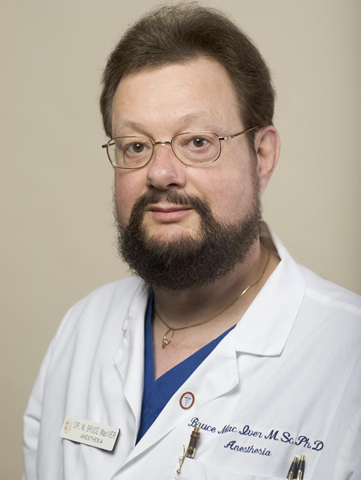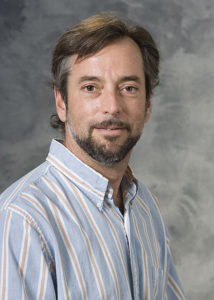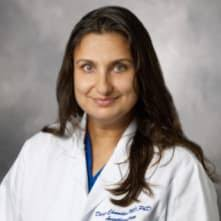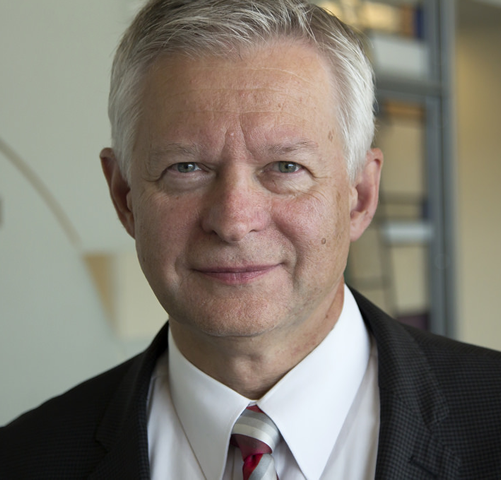|
The Science of Consciousness April 13-18, 2020 Tucson
WORKSHOP W-2
Monday Morning April 13, 2020 9:00 am - 1:00 pm Room: to be announced
Anesthesia, Consciousness & Brain Activity
Panel:
M. Bruce MacIver Matthew I. Banks Divya Chander Anthony Hudetz
This workshop will present recent advances in the neural basis of consciousness, from the perspective of anesthetic-induced loss and recovery of consciousness. Findings from humans and animals indicate that consciousness can be disrupted in several different ways by different anesthetics. This results in agent-specific effects on neuronal activity and higher level brain functions, like EEG signals. We will present several mechanistic examples of how effects at a synaptic level lead to alterations in higher level brain activity.
M Bruce MacIver MSc PhD -- Professor, Stanford University
Dr. MacIver’s research is focused on the synaptic, circuit and systems level effects produced by anesthetics. He has developed a new electroencephalogram (EEG) measure, that better captures transitions between awake, loss of consciousness and emergence from anesthetics. The long-term goal of MacIver’s work is to provide a physiological basis for the scientific design of safer and more effective drugs for anesthesia and to develop better ways to monitor brain activity in patients.
Matthew I Banks PhD -- Associate Professor, University of Wisconsin
Sensory and cognitive information is represented in the neocortex in the spatiotemporal firing patterns of cells within neural networks. Research in my lab focuses on how these firing patterns arise (circuitry and stimulus coding), how they are altered upon changes in awareness (e.g. upon loss of consciousness (LOC) induced by general anesthetics), and the causal relationship between these changes in stimulus representation and changes in awareness. Current theories of the neural basis of sensory awareness suggest that neocortex is constantly comparing expected with observed sensory information. This comparison arises through the integration of ascending inputs from the sensory periphery via ‘core’ thalamo-cortical (TC) inputs with descending/modulatory cortico-cortical (CC) and ‘matrix’ TC inputs within the same or other sensory modalities. There is indirect evidence indicating that this integrative process is disrupted in slow wave sleep and upon anesthesia LOC. Although integration of ascending and descending/modulatory inputs to the column is widely believed to be a critical component of sensory awareness and likely a target for general anesthetics, there are several fundamental unanswered questions that motivate our research program.
Divya Chander MD PhD -- Chair in Neuroscience, Singularity University
Dr. Chander is a physician, neuroscientist, and futurist who trained at Harvard, UCSD, UCSF, and the Salk Institute. She spent 9 years on the Anesthesiology Faculty at Stanford University, and 7 years as Medicine Faculty at Singularity University (2010). Her postdoctoral training in optogenetic technology was conducted in the laboratories of Karl Deisseroth and Luis de Lecea at Stanford, where she used light-activated ion channels inserted in DNA to study sleep and consciousness switches in brains. In the operating room, she applies EEG technology to understand what human brains look like when they lose and regain consciousness, and has recently developed a precision medicine initiative aimed at understanding genetic variability in responses to anesthetic drugs. Her goal is to understand neural mechanisms of consciousness. She is currently working on applications of neural wearable devices to crossover consumer and medical markets. She also works in the field of space life sciences. An alumnus of the International Space University, Dr. Chander has performed remote simulations of trauma rescues, anesthesia and surgery in Mars analogue settings with physicians in the US, France, and the Concordia base in Antarctica. Currently, she is involved with a consortium that is providing a road-map for studying the effect of microgravity and radiation on the nervous system, cardiovascular system, cognition and sleep.
Anthony Hudetz PhD -- Professor, University of Michigan
Dr Hudetz's primary research interest is experimental neurophysiology including large-scale recording of neuronal ensemble activity using high-density microelectrode arrays, signal analysis, and modeling of parallel spike trains. The application goal is to better understand state-dependent cortical information processing in wakefulness and anesthesia and the neuronal mechanisms of consciousness.
|
|
|||||||||||||



